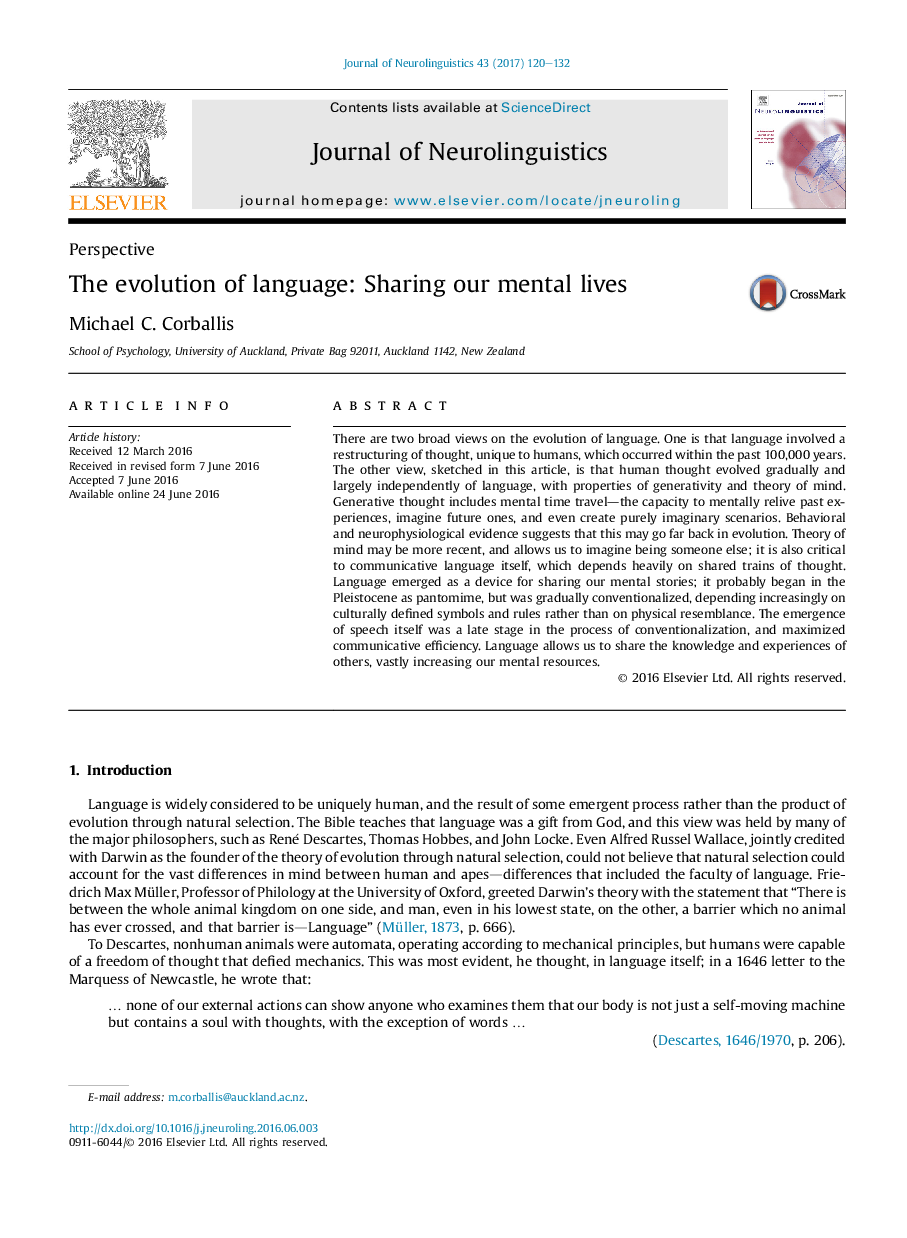| کد مقاله | کد نشریه | سال انتشار | مقاله انگلیسی | نسخه تمام متن |
|---|---|---|---|---|
| 5039202 | 1370321 | 2017 | 13 صفحه PDF | دانلود رایگان |
- Language is a device for sharing thoughts, and is distinct from thought itself.
- The features of thought critical to language are generativity and theory of mind.
- These are the products of natural selection, and not a restructuring of the mind.
- As a means of sharing thoughts, language evolved comparatively recently, probably during the Pleistocene.
- Language originated in pantomime, but was gradually conventionalized, losing iconicity, and culminating in speech.
There are two broad views on the evolution of language. One is that language involved a restructuring of thought, unique to humans, which occurred within the past 100,000 years. The other view, sketched in this article, is that human thought evolved gradually and largely independently of language, with properties of generativity and theory of mind. Generative thought includes mental time travel-the capacity to mentally relive past experiences, imagine future ones, and even create purely imaginary scenarios. Behavioral and neurophysiological evidence suggests that this may go far back in evolution. Theory of mind may be more recent, and allows us to imagine being someone else; it is also critical to communicative language itself, which depends heavily on shared trains of thought. Language emerged as a device for sharing our mental stories; it probably began in the Pleistocene as pantomime, but was gradually conventionalized, depending increasingly on culturally defined symbols and rules rather than on physical resemblance. The emergence of speech itself was a late stage in the process of conventionalization, and maximized communicative efficiency. Language allows us to share the knowledge and experiences of others, vastly increasing our mental resources.
Journal: Journal of Neurolinguistics - Volume 43, Part B, August 2017, Pages 120-132
